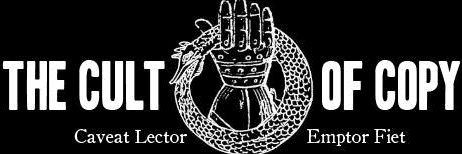“To kill an error is as good a service as, and sometimes even better than, the establishing of a new truth or fact.” – Charles Darwin, Born Feb. 12, 1902.
That's true, Charlie.
It's not just as good or better. It's way easier, too.
To know what is wrong in the world of your prospect can make you look psychic and empathetic. You can seemingly divine their unseen, unspoken struggles in terms they haven't been able to put into words.
To call out what is wrong in their world positions you as a courageous leader. They fear to speak out themselves, for fear of ridicule and reprisal. For dread of embarrassment.
To explain what is wrong in their world paints you as a problem solver who knows effective solutions. Lord knows they've worried and fretted and tried and failed to overcome their troubles on their own.
Here is the trick. That IS the trick. You don't have to promise paradise. You don't have to claim to have magical powers of healing or wisdom or wealth.
You don't have to do shit but point at what is bad, say how bad it is, and tell them why it's bad.
Do this continuously and consistently. Over and over. Remind them repeatedly. Deepen it, broaden it. Diagnose its symptoms and causes and all the fake cures that sleazy snake oil salesmen might push on them.
But that's it… At first.
Then later on, when you think of something to sell them, they will project the opposite onto it. You don't have to.
Their thought process is: that YOU obviously know the problem inside and out, so whatever you recommend should reverse it. Right? Or else why would you even mention it?
This is a conclusion they arrive at on their own – all you have to do is mention a solution, and they see it as the magical missing piece they've been thinking they needed all along.
Finally a recommendation from someone who TRULY UNDERSTANDS the problem, and what it's like to suffer from it!
It's so simple, it's stupid. That's why so many mess it up. Right?


I really like this approach, Colin. My pillar product is an adventure building course.
Stuff I don't like:
* $65 CAD for each new WotC adventure
* WotC adventures are 256 pages and feel like studying for an exam – way too much prep
* WotC adventures are a crutch for creativity
* WotC adventures often have terrible design / plot flaws
* WotC adventures are produced for maximum sales, therefore developed for the lowest common denominator and not your specific problem players
* WotC adventures don't support digital gameplay – everything is stuck in dead trees
These bullets are true for other companies, to greater or lesser degree.
I point all this out on my sales page.
But I do not see how to turn these points into value newsletter content.
I'll take your advice and turn it into an exercise: "Do this continuously and consistently. Over and over. Remind them repeatedly. Deepen it, broaden it. Diagnose its symptoms and causes and all the fake cures that sleazy snake oil salesmen might push on them."
But I'm not sure what legs those complaints have. I feel I'm missing something, because millions love to buy and use WotC modules. It was a lot easier to pick on WotC during D&D 4E, heh.
I think a lot of arguments come to mind. As a grownup that plays with other grownups, I think a lot of the stuff put out by Hasbro is going to be more G-rated. Like, the main villains in my Tuesday game are these mutated frog cultists, and there’s been a lot of body-horror stuff in their temple. Also, I’m looking for usability at my sessions – I don’t need slick paintings illustrating my stuff. I need playable content. Even better if it’s not too tied to a commercial setting and can be easily re-used. I’ve found some free online one-page dungeons I’ve used in 3 different campaigns as a drop-in location and they were fun each time.
There’s a lot of mileage one can get out of being the underdog, and punk and DIY in the face of slick corporate handholding. For the TRUE wizards that want it. Etc.